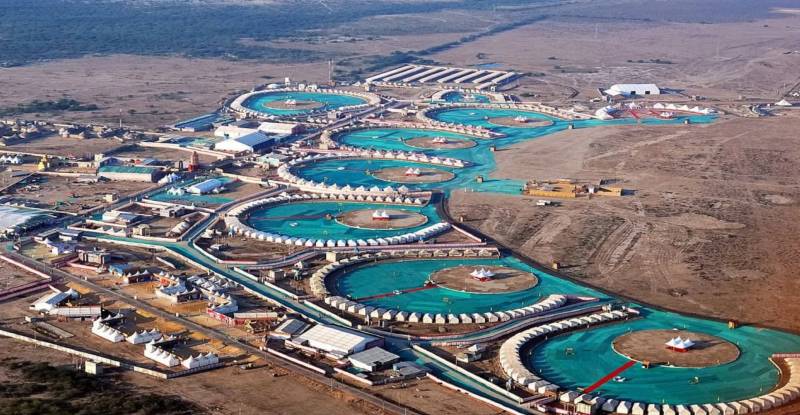Dhordo village, Gujarat
- Description
Dhordo is a small village located in the Kutch district of Gujarat, India, on the edge of the India-Pakistan border. It is about 86 kilometers from the city of Bhuj. The village is home to the annual three-month Rann Utsav festival, which celebrates the unique culture and landscape of the region. The Rann of Kutch is a vast salt marsh that is transformed into a white desert during the winter months. The festival offers visitors a variety of activities, including camel rides, cultural performances, and traditional food and shopping. Dhordo village is also home to a number of other attractions, including the Dhordo Tent City, which offers a variety of accommodation options, including traditional bhungas (mud huts). The village also has a number of restaurants, shops, and other amenities.
"From Salty Marshland to Global Marvel: Dhordo - Gujarat's Oasis of Development"
Dhordo, located in the Rann of Kutch in Western India, has transformed from a humble marshland into a prominent destination, symbolizing the development in the state of Gujarat. Tourism has played a pivotal role in elevating this once-obscure village to international recognition. Despite facing significant environmental and geographical challenges, including the devastating Bhuj earthquake in 2001, Dhordo has achieved commendable progress.
The strategic use of tourism as a tool to showcase the region's potential has yielded remarkable results. The introduction of Rann Utsav, a four-month festival that features a specially constructed tent city in the desert landscape equipped with all necessary amenities, has been instrumental. During these four months, the village comes alive, showcasing its natural and cultural treasures to visitors. The local economy is thriving as these products gain national and international promotion, attracting consumers who are eager to engage with these resources and learn about their creation.
Recognizing the significance of the region's natural and cultural assets, both the local community and the government have taken proactive measures to conserve and sustainably utilize these limited resources. The government has introduced policies like the Heritage Tourism Policy, which encourages the preservation of old properties through public-private partnerships, and the Gujarat Tourism Policy, which offers financial incentives to investors for the construction of traditional Bhungas as accommodations.




